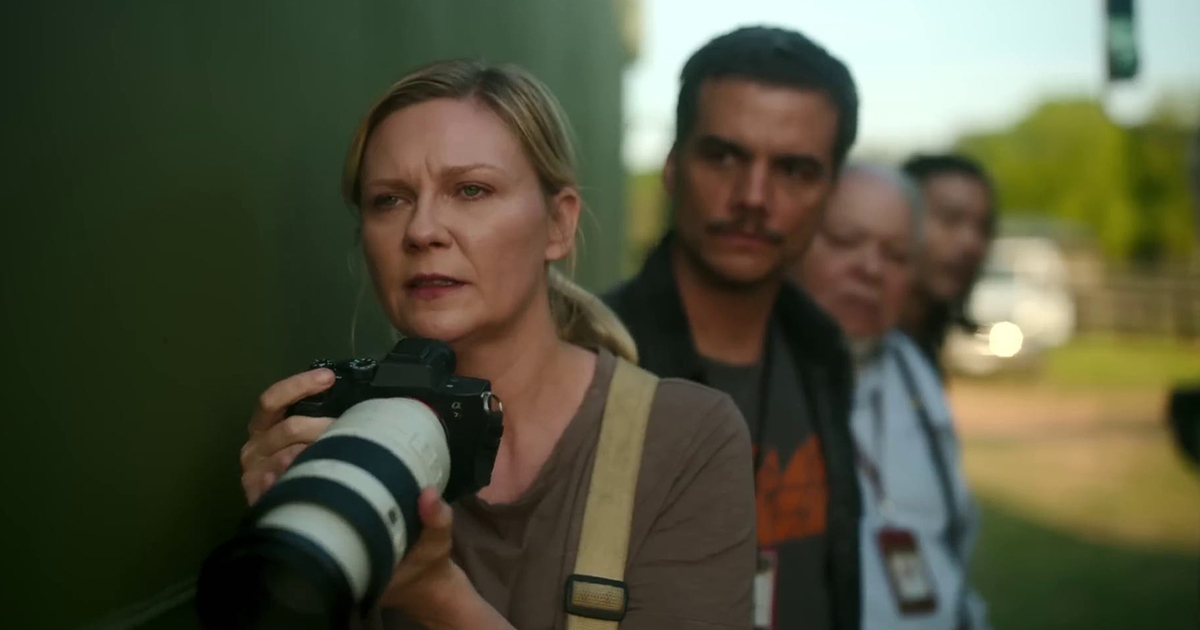[8]
During a future American civil war, four journalists travel from New York City to Washington D.C., documenting the violence on their way to the White House, where they hope to interview the president before he is overthrown. Kirsten Dunst (Interview with the Vampire) leads the ensemble, playing a photographer who has become hardened and indifferent in her pursuit of disturbing images that capture the zeitgeist. A young up-and-comer who idolizes Dunst’s character (Cailee Spaeny) tags along with the group, forcing Dunst into the role of reluctant mentor. The heart of Civil War is in the personal journeys of these two characters, passing each other while going opposite directions on the same path. Dunst subtly becomes human again, while Spaeny’s character loses her innocence heading down the path to stone cold stoicism.
Viewers expecting an action film with explosions and gunfire may find the film a slow burn through its more intimate first and second acts, but the third act does indeed deliver on the story’s visceral potential when the journalists embed themselves with the soldiers who finally break into the White House. Dunst gives an interesting, spartan performance, playing a character who rarely says what she is thinking. Her transformation is subtle, but powerful — built in reaction shots and a few bold actions. She’s so effective, many viewers may overlook how good she really is. The rest of the cast is also very strong, including Stephen McKinley Henderson (Dune) as a disabled reporter who threatens to slow the group down, and Oscar-nominee Jesse Plemons (The Power of the Dog) as a quick-trigger terrorist. Plemons appears in only one scene and his work is uncredited, but he’s easily one of the most terrifying elements in the entire film. Comedian Nick Offerman plays the authoritarian president. While he’s an inspired casting choice, he appears in only a few fleeting moments.
The civil war depicted in this film is thankfully not a direct parallel to real-world events. The last thing we need is a partisan film in an increasingly partisan world. If writer/director Alex Garland (Annihilation, Men) is commenting on anything, it’s on the perils of losing our humanity in the face of traumatic conflict — not on any specific political issue. Garland is a wonderfully sophisticated screenwriter who never indicates or foreshadows his intentions. His other films are more conceptual pieces that slowly unfold to reveal the mysteries within, but Civil War is a bit different. It has no central mystery. The war started before the movie begins, and it’s cause and nature are irrelevant to the story. We’re merely spectators in Garland’s dystopian vision until it slowly dawns on us to pay attention to the growing dichotomy in Dunst’s and Spaeny’s characters. Civil War is a cautionary tale with a noble aim: it asks both sides of any political divide to consider the toll on our souls when we favor violence over communication.
With Wagner Moura, Jefferson White, and Nelson Lee.

